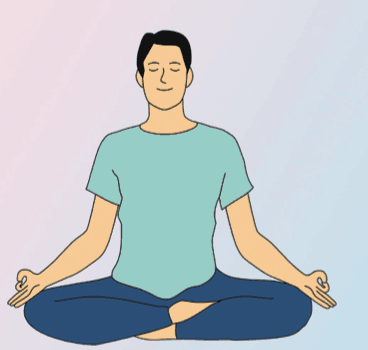By: BK Usha
Source: The Daily Guardian https://epaper.thedailyguardian.com/view/2944/the-daily-guardian/15
Dated: September 1st, 2025

Many people consider pleasure and happiness to be the same. Pleasure may provide happiness, but it is short-lived, and it is possible to be happy even in the absence of pleasurable experiences.
Pleasure is a temporary sensory or emotional feeling of enjoyment or gratification, derived from external sources such as good food, monetary gain, or a compliment. It is experienced through the sense organs – the taste of one’s favourite dessert, the sound of a beloved piece of music, the fragrance of a summer garden…. Happiness, in contrast, is ethereal in nature; it is not merely a physical experience.
A major difference between the two is that pleasure is almost always the result of getting something, whereas happiness is often experienced by sharing and giving. That is why pleasure is associated with acquisition, consumption, and accumulation, while happiness is linked to goodness, kindness, and generosity.
Helping others generates the feeling within us that we can make a difference, however small, in someone else’s life. Contributing to something greater than ourselves provides a sense of fulfilment from living a life of meaning and purpose, which increases our overall happiness. Acts of kindness also help to deepen relationships, increase feelings of belonging, and build trust. Empathy plays a part here; when we help someone, we may experience their joy, relief, or gratitude, which builds an emotional connection with them.
The boost in mood which comes from performing acts of kindness, is sometimes called the ‘helper’s high’. In fact, our brain rewards us when we do something good for others, by releasing neurochemicals that create a feeling of satisfaction. Medical research has shown that feelings of pleasure and happiness produce different effects on the brain.
Brain scans done on people when they were eating or watching television showed the release of a hormone called dopamine. This neurotransmitter is involved in the brain's reward system, and helps to reinforce behaviours by providing feelings of satisfaction and pleasure. But repeated activation of dopamine pathways through pleasure-seeking activities can lead to addiction. We see this most commonly in the form of addiction to sweets, the mobile phone, or shopping. Excess of dopamine can even result in mania.
Happiness is different. Research done on Buddhist monks while they were in a happy state and meditating, showed the release of the hormone serotonin. Serotonin helps stabilize mood, contributes to feelings of contentment, promotes emotional well-being and balanced, thoughtful behaviour.
When people smoke or drink, there is release of dopamine, not serotonin.
Happiness is an innate quality of the soul. It is, in fact, referred to as the soul’s best nourishment. Similar to how food fuels the body, happiness nourishes our mental, emotional, and physical health in ways that go far beyond the basic needs of nutrition. Happiness improves our health by reducing stress and boosting the immune system, and when we are happy, we are better equipped to handle setbacks and life's challenges.
Moreover, happiness is free and accessible to everyone. Unlike pleasure, which requires external resources such as food, or money, happiness is something we can cultivate from within. Practice of gratitude, mindfulness, meditation, and engaging in positive activities helps us sustain happiness even in the face of difficult circumstances.

BK Usha is a Rajyoga teacher
at the Brahma Kumaris headquarters in Abu Road, Rajasthan.



